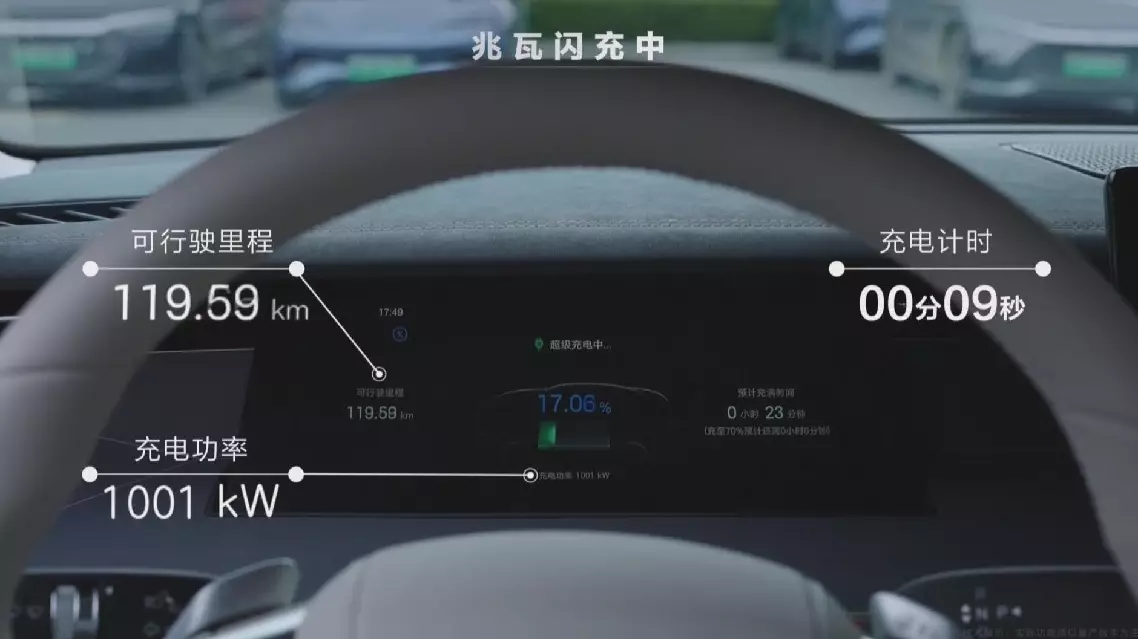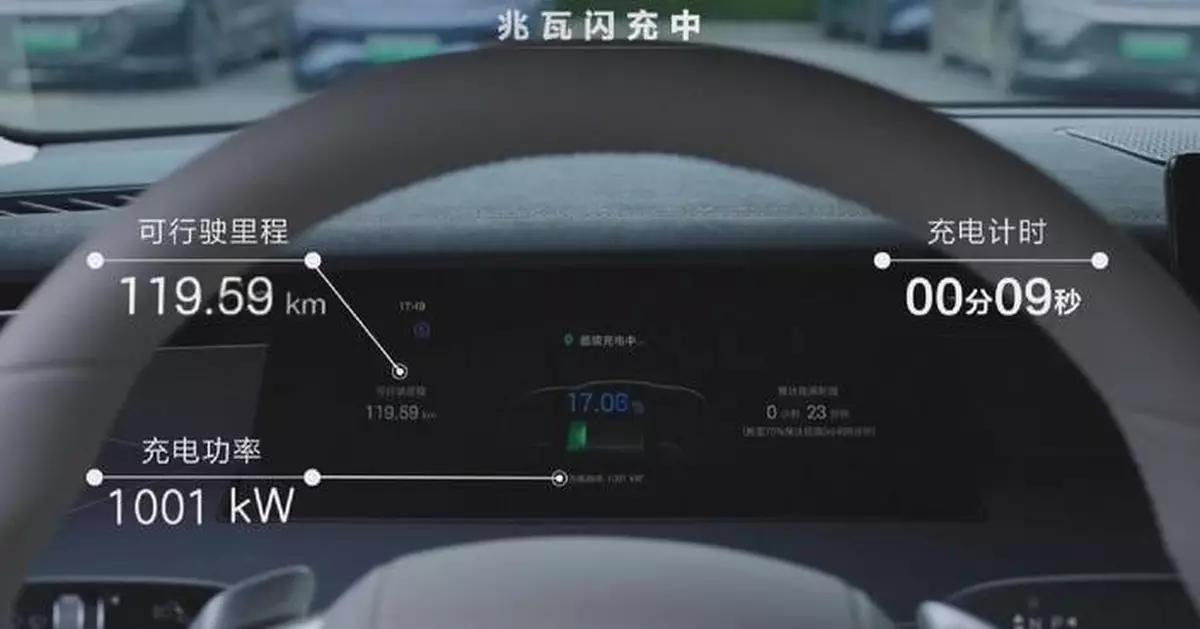Chinese automaker BYD on Monday introduced a new fast-charging battery capable of reaching a top charging speed of 2 kilometers per second and providing a driving range of 407 kilometers after a five-minute charge.
The cutting-edge flash charging technology is part of BYD's Super e-Platform, which promises to reduce charging time and redefine convenience for drivers.
The battery boasts a maximum charging power of 1 megawatt, supports a maximum charging voltage of 1 kilovolt, a maximum charging current of 1,000 amperes and a peak charging rate of 10 C, according to BYD Chairman Wang Chuanfu.
Wang said achieving charging times comparable to refueling traditional vehicles – a concept he described as "oil-electric parity" – is key to addressing the driving mileage concerns known as charging anxiety.
"In order to achieve the goal of charging an EV in the same time it takes to refuel a gasoline car, we have to develop ultra-high power charging facilities, which require both extremely high voltage and exceptionally high current. This approach will maximize the charging speed to the greatest extent possible," he said.
"Now, with megawatt flash charge, the mileage can be added in just five to eight minutes finally making the charging time as short as the refueling time. This officially opens a new era of equal speed for oil and electricity and changes the battery charging scenario from 'drivers waiting for their cars' to 'cars waiting for their drivers'," Wang said.
At the launch event, BYD also introduced Han L sedan and the Tang L SUV -- two new models that showcase the technology, along with a a mass-produced 30,000 RPM motor.
The EV giant plans to build over 4,000 ultra-fast charging stations nationwide.
The announcement of new EV platform positions BYD ahead of arch-rival Tesla, whose Superchargers currently offer charging speeds of 500 kilowatt.

BYD unveils 1 MW fast-charging battery with speed matching gas refueling
China's National Development and Reform Commission (NDRC) will work with relevant departments and local authorities to take concrete steps to promote the implementation of the newly passed private sector promotion law, a landmark legislation concerning a vast economic force in the country, said an NDRC official.
China's top legislative body -the National People's Congress - passed the private sector promotion law on Wednesday, establishing a legal backing for the steady and healthy growth of the key sector, including more than 57 million private firms and over 100 million self-employed individuals.
This landmark law is China's first fundamental legislation dedicated to the private sector. It will bolster confidence among the vast community by improving the business environment, fostering innovation, and ensuring fair competition, according to NDRC, the country's top economic planner.
"The private sector promotion law has actively responded to the key concerns in the development of the private sector. Efforts are made to establish and improve relevant systems and enhance the enforceability of the systems, from ensuring fair competition, improving investment and financing environment, supporting technology innovation, focusing on regulated operation, optimizing services and guarantees, and improving rights and interest protection, to strengthening legal accountability, so as to ensure that all forms of ownership can equally utilize production factors by the law, participate in market competition fairly, receive equal legal protection, further unleash their complementary advantages, and pursue common development," said Liu Min, deputy director of Private Sector Development Bureau under NDRC.
Liu added NDRC will continue to work together with relevant departments and local authorities to improve supporting systems and mechanisms and take concrete steps to promote the implementation of the private sector promotion law.
"We will make continuous and increasing efforts to remove barriers to market access and to fair competition, to address the issue of overdue payments to private enterprises, to protect the lawful rights and interests of private businesses and entrepreneurs by the law, to implement various relief policies, to help private enterprises shoulder their responsibilities of the era, so as to help translate legal systems into concrete actions and tangible outcomes that promote the high-quality development of the private sector," said Liu.

Concrete steps to take for firmly implementing China's landmark private sector promotion law: official





















































